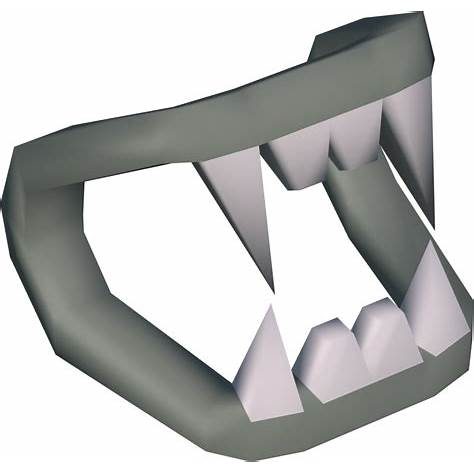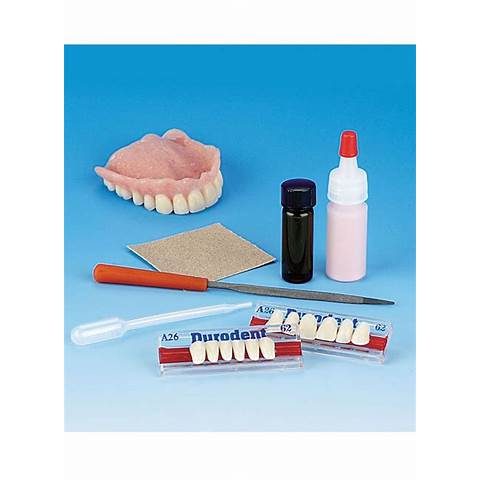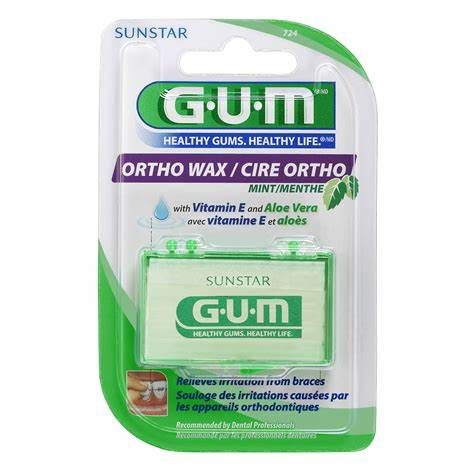What are Monkey Mouth Dentures?
Monkey mouth dentures, also known as collapsed bite dentures, is a condition that occurs when a person wears dentures that do not adequately support the lips and cheeks. It is often characterized by a sunken-in, “monkey-like” appearance of the mouth area. This condition can have a significant impact on a person’s self-confidence and quality of life, making it difficult to eat, speak, and smile naturally.
The primary cause of monkey mouth dentures is improper denture design or inadequate support for the lips and cheeks. This can occur due to a number of factors, including wear and tear on existing dentures, changes in facial structure due to aging, or changes in weight and body composition.
When the dentures do not fit correctly, the mouth muscles have to work harder to keep the dentures in place. Over time, this extra effort can lead to muscle fatigue and weakness, which eventually causes the mouth to take on a sunken appearance. Additionally, as the muscles weaken, the cheeks and lips can begin to droop or sag, contributing to the “monkey mouth” appearance.
Aside from the physical appearance, monkey mouth dentures can also contribute to issues such as a decreased ability to eat and speak naturally. Without adequate support from the dentures, it can be challenging to chew and swallow food, and talking can become difficult due to the changes in mouth structure.
If you are experiencing monkey mouth dentures, it is essential to seek help from a dental professional. They can evaluate your dentures and recommend appropriate solutions to improve the fit and support provided by the dentures, including adjustments or replacement of the dentures.
In some cases, dental implants or other surgical interventions may be necessary to correct the underlying issue and provide better support for the lips and cheeks. A qualified dental professional can assess your individual needs and determine the best course of treatment for your specific situation.
In conclusion, monkey mouth dentures can have a significant impact on an individual’s oral health and overall quality of life. It is essential to seek help from a dental professional if you are experiencing this condition to obtain appropriate treatment and improve your well-being.
Why Do Monkey Mouth Dentures Occur?
Dentures are an effective solution for people who have lost their natural teeth due to injury, disease, or old age. They are a custom-designed set of artificial teeth that fit comfortably in the mouth and restore the aesthetics of the face while also enabling a person to chew and speak normally. However, poorly fitted dentures can lead to a condition called “monkey mouth,” which can cause discomfort, embarrassment, and even damage to the underlying gums and jawbone.
Monkey mouth is a condition where the front of the mouth protrudes outwards, giving the appearance of a monkey’s mouth. It often occurs when the upper denture plate is too large or the front teeth of the dentures are too long. As a result, the upper lip is forced outwards, causing the face to look unnatural and unappealing. This condition can be particularly embarrassing for people who wear dentures since it makes them feel self-conscious and less likely to interact with others.
There are several reasons why monkey mouth dentures occur:
Contents
1. Incorrect Fitting of Dentures
The most common reason why monkey mouth dentures occur is due to incorrect fitting of the dentures. Dentures need to be custom-designed and fitted precisely to the shape of the gums and jawbone to ensure that they are comfortable and functional. However, sometimes the dentures are too big or too small, leading to discomfort and pain.
Ill-fitting dentures can also cause the gums to become inflamed, leading to a condition called “gingivitis.” Gingivitis can make it difficult to eat and speak, and if left untreated, it can lead to more serious oral health problems such as periodontal disease.
2. Deterioration of the Jawbone
Another reason why monkey mouth dentures occur is due to the deterioration of the jawbone. When a person loses their natural teeth, the jawbone begins to shrink and lose its shape. Over time, the jawbone can deteriorate to the point where it can no longer support the dentures, causing them to slip and slide around the mouth.
When the jawbone deteriorates, it can also cause the cheeks to sag and the lips to protrude. This can give the appearance of a monkey’s mouth, which can be embarrassing and uncomfortable for the person wearing the dentures.
3. Poor Quality Dentures
Poor quality dentures can also lead to monkey mouth. When dentures are made from inferior materials or are poorly constructed, they can quickly become ill-fitting and uncomfortable. Cheap dentures can also cause the gums to become inflamed, leading to gingivitis and other oral health problems.
When shopping for dentures, it is important to invest in high-quality dentures that are made from durable materials and are constructed with precision. High-quality dentures may be more expensive, but they are worth the investment to avoid the discomfort and embarrassment of monkey mouth.
In conclusion, monkey mouth dentures can occur for several reasons, including incorrect fitting of dentures, deterioration of the jawbone, and poor quality dentures. If you are experiencing monkey mouth, it is important to speak with your dentist to determine the underlying cause and to find a solution that will restore your comfort and confidence. With the right treatment, you can regain the aesthetics of your face, speak and eat normally, and enjoy your life to the fullest.
DIY Fixes for Minor Monkey Mouth Dentures

If you have monkey mouth dentures, then you know the struggle of getting the perfect fit. Sometimes, your dentures can become misaligned, causing them to shift, pinch, or rub against your gums. This can not only be painful, but it can also make it difficult to eat, talk, or smile with confidence. Fortunately, there are several DIY fixes for minor monkey mouth dentures that you can try at home without having to pay a visit to the dentist.
1. Adjust the fit

If your dentures feel loose or tight, then you can adjust the fit yourself by using a denture adhesive or denture reline kit. Denture adhesives come in a cream or powder form and can be applied directly to the denture before insertion. They can help create a stronger bond between the denture and the gums, so the denture stays in place and doesn’t move around. Denture reline kits, on the other hand, are a bit more complicated to use but can offer a more permanent fix. They involve a two-part system that you mix together, apply to the denture, and then insert into the mouth to create a customized liner that conforms to your gum line.
2. Use Orthodontic Wax

If you have a small sore or ulcer on your gums where the denture rubs, then you can use orthodontic wax to provide relief. Orthodontic wax is a soft, pliable material that you can mold and shape to fit over the area of the denture that’s causing the irritation. It can act as a barrier between the denture and the sore spot, reducing the friction and preventing further irritation. Orthodontic wax is available at most drugstores and can be purchased over the counter without a prescription.
3. Soak it overnight
If you have noticed that your dentures have become malodorous or stained, you can soak them in a cleaning solution overnight. Many cleaning solutions are available on the market for denture cleaning and soaking. However, these only clean the surface. To effectively clean your dentures, you need to remove them from your mouth and rinse them under running water before soaking them overnight. You can try using a denture cleanser tablet or a mixture of baking soda and water for the solution. Be sure to follow the instructions on the package of the cleaning tablet. Before using baking soda solution, make sure your dentures are not made of metal because baking soda can corrode them.
These DIY fixes are inexpensive and can be done from the comfort of your own home, but they do not replace professional dental care. If you’re experiencing significant pain or your dentures are considerably damaged, it’s important to consult with your dentist.
Professional Fixes for Major Monkey Mouth Dentures
Monkey mouth dentures can be a particularly distressing problem for denture wearers. If you’re experiencing this issue, don’t worry. There are professional fixes available that can help you restore the comfort and function of your dentures. Let’s explore some common professional fixes for major monkey mouth dentures.
1. Denture Relining:
Denture relining is a process that involves adding material to the underside of the denture base, making it fit more snugly against your gums. This helps to create a better seal and prevent food particles and other debris from getting trapped between your dentures and your gums.
If your monkey mouth dentures feel loose or uncomfortable, relining may be a good option. Your dentist or prosthodontist can assess your dentures and determine whether relining is appropriate for your needs.
2. Denture Remaking:
If your monkey mouth dentures are severely warped or damaged, it may be necessary to remake them entirely. Your dentist will take new impressions of your mouth and create a new set of dentures that fit comfortably and securely.
This may be a more expensive option than relining, but it may be necessary if your dentures are beyond repair. A new set of dentures can provide better function and improved overall oral health if daily oral hygiene practices are maintained.
3. Implant-Supported Dentures:
Implant-supported dentures are an excellent option for people who can tolerate dental implants. These dentures are anchored to dental implants, which are surgically placed into the jawbone. This provides improved stability and prevents the dentures from slipping or shifting while eating and speaking.
Implant-supported dentures may be more costly than other options, but they can provide significant benefits for those with monkey mouth dentures. Your dentist can evaluate your eligibility for implant-supported dentures and help you determine whether they are a good option for you.
4. Scaling and Polishing:
If you have monkey mouth dentures, it’s important to maintain good oral hygiene practices to prevent further damage to your dentures and your mouth. Scaling and polishing is a professional dental cleaning that removes plaque, tartar, and other debris from the surfaces of your teeth, dentures, and mouth.
This can help to prevent further gum and bone loss, which can exacerbate the monkey mouth effect. Talk to your prosthodontist or dentist about scheduling regular cleanings to keep your mouth healthy.
There are many things you can do to help fix monkey mouth dentures. The key is to work with a qualified dentist or prosthodontist to develop a personalized treatment plan based on your needs and preferences. With the right care and attention, you can restore the comfort and function of your dentures and enjoy a healthy and pain-free smile once again.
Preventing Monkey Mouth Dentures from Happening Again
If you have recently fixed your monkey mouth dentures or have received a new set, you will want to take the necessary steps to ensure they last as long as possible. In this section, we will go over five tips to prevent monkey mouth dentures from happening again.
1. Proper cleaning and storage of your dentures is essential in preventing monkey mouth. You should brush your dentures at least twice a day and soak them in a denture cleaner overnight. It is important to store your dentures in a safe place that is not too hot. Keep them out of reach from pets and children, as they may be tempted to play with them.
2. Schedule regular appointments with your dentist to ensure that your dentures are fitting properly. Your dentist will check for any signs of wear and make adjustments as necessary. If you experience any discomfort or pain while wearing your dentures, make sure to notify your dentist immediately.
3. Avoid eating hard, sticky, or chewy foods that can stress your dentures. These types of foods can cause your dentures to become loose, which can lead to monkey mouth. Instead, opt for softer foods like cooked vegetables, fruit, and lean meats.
4. Be mindful of any changes in your mouth. If you notice any unusual sensations, such as pain or soreness, make sure to contact your dentist right away. This could be a sign that your dentures are causing friction in your mouth, which can lead to monkey mouth.
5. Lastly, be sure to wear your dentures as directed by your dentist, and don’t try to adjust them yourself. Your dentist will make the necessary adjustments to ensure that your dentures fit properly and feel comfortable in your mouth. By following these tips, you can prevent monkey mouth from happening again, and keep your dentures looking and feeling great!
